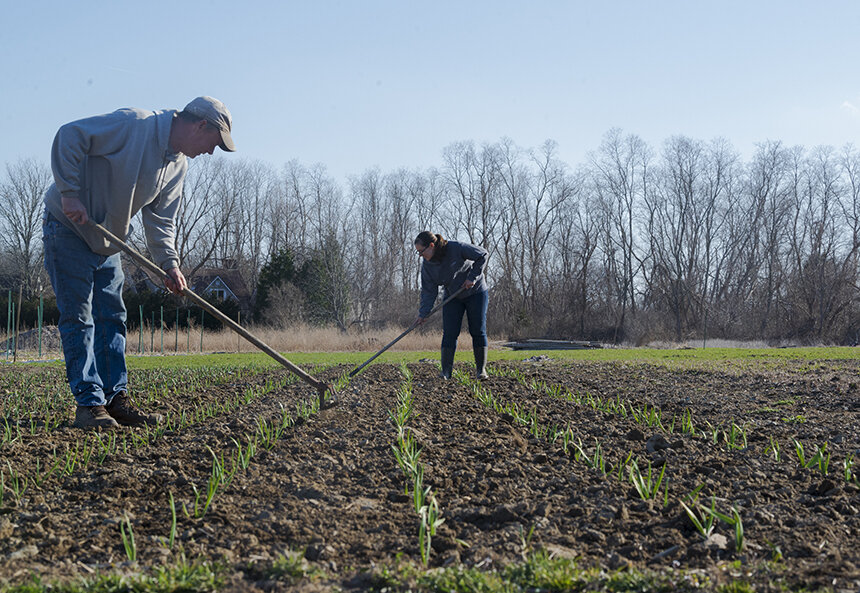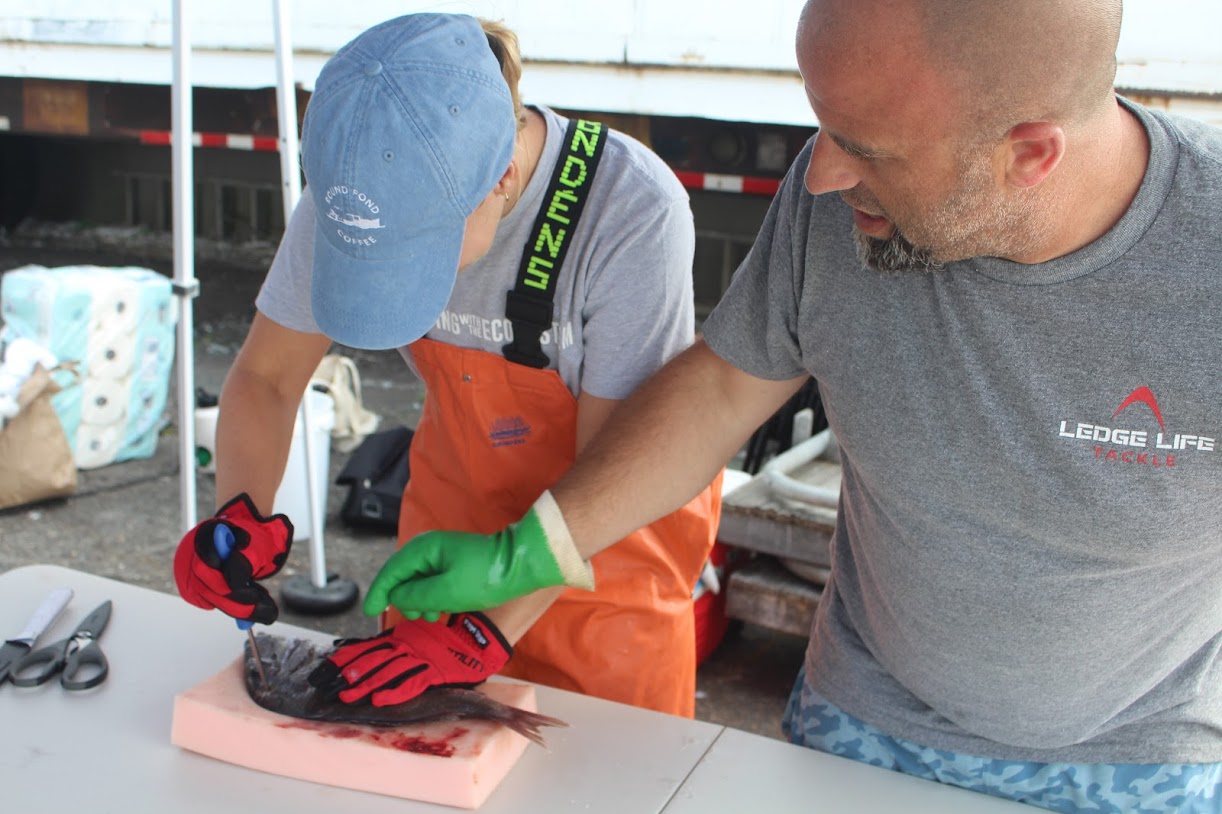Community Farms Help Feed the State’s Needy
February 23, 2010
CUMBERLAND, R.I. — On Monday and Thursday nights in the summer, Rhode Island’s only intact Colonial-era farm comes to life with the sounds of workers in the fields. But instead of a family trying to earn a living, the workers are members of the community, volunteering for a cause.
That cause is helping to feed the hungry. Franklin Farm Community Garden, on Abbott Run Valley Road, is one of seven nonprofit farms and gardens that make up the Rhode Island Community Farm Association, a network of local growers that donate most of their produce to the Rhode Island Community Food Bank.
Started with a single garden in 2001, the program now produces between 15 and 16 tons of fresh fruits and vegetables over the course of a growing season. A substantial portion of that yield comes from the garden at Franklin Farm, which has produced almost 25 tons in the four years since it joined the community farm association.
“We had this farm, and we had people who were willing to volunteer, so we said, ‘Let’s try it,’” said Frank Geary, president of the Historic Metcalf-Franklin Farm Preservation Association, which maintains the property and organizes the community garden project.
Geary said the 64-acre property the association protects dates back to the late 1700s, when it was bought from the Wampanoag Indians. It was operated as a dairy farm until 1990, when its aging owner could no longer keep up with it. He sold the fields and the barn to the town of Cumberland, which acquired the farmhouse after his death.
For this reason, Geary said, Franklin Farm has the distinction of being the only “complete” farm — one that never sold off land for development — in Rhode Island. Today, the farm is an island of open space, bounded on all sides by suburban neighborhoods. One of the association’s goals is to preserve this open space for the community to use, said Denise Mudge, volunteer coordinator for the Franklin Farm Community Garden.
“We encourage people to come out for passive use,” she said. “There are kids who will sled, cross-country skiing, picnics, hiking … things like that.”
After an initial “planting day” in the spring, which usually features educational presentations for visiting schoolchildren, the Franklin Farm Community Garden invites volunteers to help out on Monday and Thursday nights throughout the summer. While corporate or social groups will often come from far away for a single night, both Mudge and Geary stress the importance of working in the garden to the local community.
“The neighbors have rallied around us,” Geary said. “It’s turned into an opportunity for neighbors to come and really share the neighborhood because they all meet in the garden.”
“It’s very laid back,” Mudge said. “Come once; come ten times, whatever you like.”
Of course, not all members of the Rhode Island Community Farm Association are preservation projects like Franklin Farm. One of the more interesting groups that grow crops for the food bank is The University of Rhode Island’s College of Environment and Life Sciences.
As a land grant institution, URI is charged with teaching, researching and serving the community, particularly in the field of agriculture. For six years, the university has been donating the produce grown for research or teaching purposes in its agronomy fields to the Rhode Island Community Food Bank.
Unlike other members of the community farm association, URI’s planting choices are informed less by the needs of the food bank and more by intellectual or scientific curiosity. Kristin Castrataro, an agricultural extension agent for the university and one of the project’s overseers, said many of the vegetables she plants are chosen for comparative trials.
“(We’ll) plant, say, 50 different varieties of something in small pieces and then go in and collect data throughout the growing season,” she said. “We can also try out some oddball new varieties or some heirloom varieties so that we can give (commercial) farmers access to a wider variety of stuff without them having to take a risk.”
The College of Environmental and Life Sciences garden also is an educational tool. “Master gardeners” — adults who have taken a URI course in gardening to earn the title — do much of the spring planting. During the summer, students are involved in the data collection and research process. The fall harvest is done by first-semester freshmen as a part of their freshman seminar.
Though they’ve gone about it in different ways, both URI and Franklin Farm have taken the idea of providing fresh produce to those who need it and expanded it into a way to better serve the citizens of Rhode Island.
“It’s so much more than just growing vegetables for the food bank,” Geary said. “It’s being a part of the community and inviting the community to be a part of this.”
Categories
Join the Discussion
View CommentsYour support keeps our reporters on the environmental beat.
Reader support is at the core of our nonprofit news model. Together, we can keep the environment in the headlines.
We use cookies to improve your experience and deliver personalized content. View Cookie Settings



